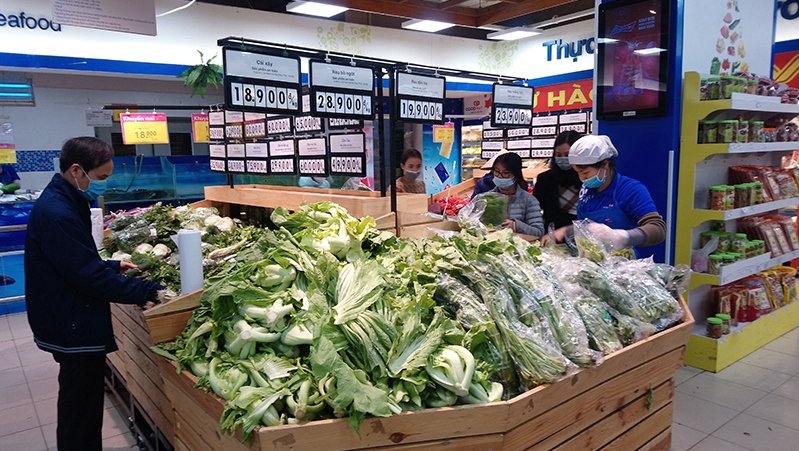Vietnam proactively regulates prices to stabilise market

Tran Thi Hoa, a resident in Hanoi's Dong Da District, said she would previously have spent less than 200,000 VND (8.8 USD) on daily groceries but now this amount has increased twofold. Since the start of the year, fuel prices have spiked five times, resulting in rises in the prices of other goods. Hoa suggested that the Government introduce price stabilisation measures to help the people, especially as their incomes have already fallen sharply due to the pandemic.
A survey shows that vegetable and fruit prices in traditional markets around Hanoi have risen sharply, but the prices in supermarkets have remained relatively stable, with some even running promotional programmes to boost consumer demand.
Another service that is also struggling to keep prices unchanged is transport. According to Gia Lam Bus Station's Deputy Director Nguyen Manh Tuan, bus operators are trying hard to maintain their fares despite the fuel price rises because, as travel demand is low, increasing fares will cause drops in revenues. In the meantime, taxi operators are preparing plans to raise their fares as their tolerance has reached limits with consecutive rises in fuel prices.
Official data showed the consumer price index rose 1.68% in the first two months of 2022, with core inflation at 0.67%. The General Statistics Office stated that inflation was controlled at the appropriate level but also noted that the task of price regulation in the coming months should closely follow the global oil market and measures are needed to ensure the supply of fuel products and minimise price hikes. The relevant ministries and agencies should have plans to ensure the adequate supply of essential goods as traditional sources of supply might face shortages.
In order to stabilise fuel prices, the Ministry of Finance recently proposed a plan on cutting the environmental protection tax to the Government. The specific plan will be decided on the Government and then submitted to the National Assembly Standing Committee for consideration and approval.
Economist Ngo Tri Long stated that the space for regulating fuel prices lies primarily in the tax policy. A litre of petrol is currently subject to 4,000 VND of environmental protection tax, so if the tax rate is lowered by half, it will help reduce the input costs significantly for directly affected sectors, such as transport and fishing, as well as indirectly create impacts on other sectors of the economy. Long emphasised the significance of the tax cut that after two years battling COVID-19, the income of the majority of workers have not risen but dropped.
Long also spoke highly of the policy of lowering the value added tax by two percentage points for many types of goods since late 2021, which has exerted a major impact on production and consumption. For the same quantity of goods and services, consumers will have to pay less, which encourage them to buy more, thus promoting production, creating more jobs and generating higher incomes for workers.
High inflationary pressure is an issue that the Government has paid significant attention to and responded with appropriate policies. However, given the rises of global oil prices, the target of keeping inflation at 4% this year is an enormous challenge.
According to retail expert Vu Vinh Phuc, market management agencies should step up inspections to promptly uncover price hikes unreasonably attributed to rising fuel costs. In the long run, it is necessary to address the problem of heavy reliance on energy and raw materials imported abroad, especially in such sectors as electronics, garments, footwear, plastics, steel, and chemicals.
At the same time, it is an urgency to reconnect supply chains in the domestic market, invest in transport infrastructure and reduce logistic costs so as to enhance the competitiveness of Vietnamese goods in the domestic market and reduce the inflationary pressure. In addition, it is necessary to encourage the people to spend wisely, only buy essential items, and eliminate the mentality of stocking up on goods.
(Source: VNA)


